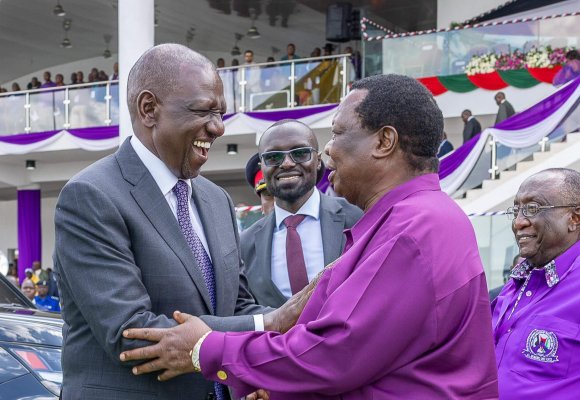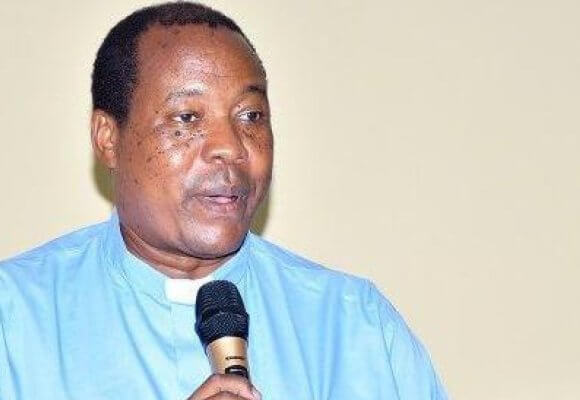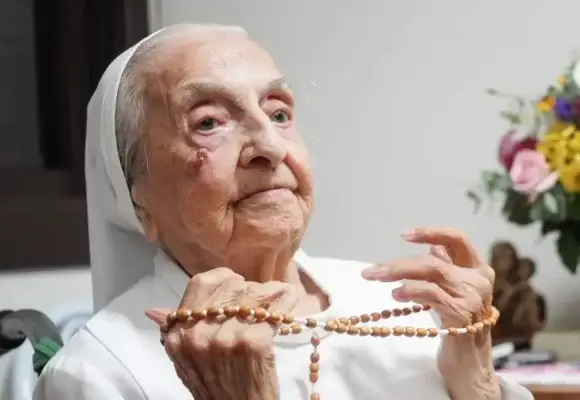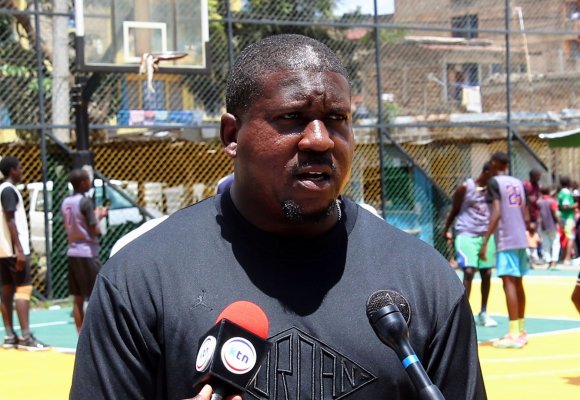|
LISTEN TO THIS THE AFRICANA VOICE ARTICLE NOW
Getting your Trinity Audio player ready...
|
Wednesday was a day of high tension across Kenya, as thousands of people heeded the call of the Azimio la Umoja One Kenya coalition party to protest against the government’s failure to address the rising cost of living.
In Nairobi, Mombasa, Nakuru, Kisumu, and other towns, protesters took to the streets, chanting slogans and demanding that the government take action to lower the prices of food, fuel, and other essential goods.
The police responded to the protests with tear gas and water cannons, and there were several reports of arrests and deaths and severe injuries.
The protests were the latest in a series of demonstrations against the government’s economic policies. In recent months, the cost of living in Kenya has skyrocketed, with food prices rising by more than 20%.
The government has blamed the rising cost of living on global factors, such as the war in Ukraine, but protesters say that the government is not doing enough to help its citizens cope with the rising prices.
The government closed down schools in Nairobi and Mombasa as a move to protect learners from harm during the protests that have at times turned violent in recent times.
“As a precautionary measure to ensure the safety of school children, it has been decided that ALL day Primary and Secondary schools within Nairobi and Mombasa cities shall remain closed tomorrow,” Interior Minister Kithure Kindiki said in a statement Tuesday evening.
“The government has received credible security intelligence that criminal elements planning to unleash terror and violence on the public tomorrow intend to engage in armed skirmishes with security agencies around certain schools within Nairobi and Mombasa cities,” the statement read.
“The Ministry of Education shall announce the resumption of learning in the aforesaid schools upon assessment of the security situation in the course of tomorrow.”
By Wednesday evening, the police had rounded up dozens of protesters and opposition leaders. Among those snared were Embakasi East MP Babu Owino, Raila Odinga’s private guard Maurice Ogeta, ODM’s Communication Director Dennis Onyango, and several other Azimio-allied leaders.
In a statement on Wednesday, Narc Kenya party leader Martha Karua on behalf of Azimio termed the actions as illegal and aimed at paralysing the protests.
“We condemn in the strongest terms possible the arrests of Azimio leaders and close associates of leaders without any colour of right or lightest justification,” she said.
“Their continued unlawful detention which the Ruto regime has sanctioned, together with the excessive force being used is in flagrant violation of our constitution and laws,” Karua added.
In Nairobi downtown, the streets were eerily quiet as the sun rose over the almost clear ghostly city. The previous week’s protests had left a trail of destruction and death, and many people were still too scared to venture out. Few businesses dared to open, and the owners complained of a lack of customers.
Days to the protests, the state withdrew the security details for opposition leaders Raila Odinga and Kalonzo Musyoka. Security officers assigned to Ngina Kenyatta, widow of Kenya’s first president, were also withdrawn on Wednesday. President Ruto has several times accused former president Uhuru Kenyatta of funding the Azimio anti-government protests, a claim the opposition has laughed off.
Human rights organizations strongly criticized the police for their excessive use of force last Wednesday.
In a press statement dated July 20, Amnesty International Kenya said the police have been using unnecessary force that includes lethal force, leading to increased deaths and injuries to adults and children alike.
The organization said that since March this year, at least 30 protestors have been killed by police.
“They include March 20th and 27th protests (12), the Saba Saba protest (12) and yesterday’s July 19th (6). The deaths have been attributed to suffocation from tear gas and lethal shootings,” the statement read in part.
“We call for an immediate stop to violent policing and criminalizing of protests by the state. We demand urgent investigations and prosecution of police officers and their commanders for excessive use of force,” the statement added.
The Independent Policing Oversight Authority the previous week said it had opened investigations into “various incidents that have occurred in parts of the country, during mass protests that have pitted the police against members of the public in recent times.”
“On the onset, the Authority lived up to its mandate and in particular Section 6 (c) of the Independent Policing Oversight Authority Act, which demands that the Authority shall; “monitor and investigate policing operations affecting members of the public,” IPOA’s statement read further.
The clergy also weighed in on the upholding events, calling out the police for their brutality towards the citizens.
“We, Catholic Bishops, strongly condemn the police brutality inflicted upon innocent Kenyans during the protests,” the bishops said on Wednesday.
“We understand there are criminals who disguise themselves among protesters to vandalize property, steal from people, injure and even kill people in their evil schemes. These are the ones the police should go for to ensure peaceful demonstrations are conducted according to the law,” KCCB members further said.
They added: “Police cannot take advantage to brutalize innocent Kenyans. Such acts are unacceptable and must not be tolerated under any circumstance.”
The Catholic Church leaders requested Azimio to call off the demonstrations and resume the botched bipartisan talks, albeit in a different form.
“We now make this passionate appeal to President William Ruto and Rt. Hon. Raila Odinga to give dialogue a chance. We demand that the failed bipartisan talks should be resumed in a different context that brings on board the religious leaders and some other eminent persons and bodies,” they said.
The leaders also asked Ruto to repeal the controversial Finance Act 2023, saying it will put a further strain on the cost of living, which is already a burden to most Kenyans.
Despite the huge outcry and condemnation of police brutality from the opposition, the church and civil society, President Ruto Thursday praised the police for ensuring peace during the protests.
“I congratulate the police for standing firm, for ensuring peace prevails and ensuring that all criminals are dealt with,” Ruto said.
Raila Odinga for the first time was missing in action in the protests that he had planned, raising questions about his whereabouts from his supporters and political enemies alike.
However, the National Assembly Minority Leader Opiyo Wandayi Thursday defended Odinga’s silence since Wednesday’s protests, saying he is safe and that there is no cause for alarm.
“You must understand that this is now a people’s movement and doesn’t require the presence of any leader to succeed. All of us are contributing to this cause hence there’s no cause for alarm whether you see the leaders physically or not,” Wandayi said.
“Baba is very safe and is alive and kicking. When you see us here you see Baba. The protests are not his own,” he added.
In an interview with a local TV station on Thursday via phone, Odinga said he was suffering from common cold, but said he was getting well.
Babu Owino’s Long and Winding Road to Freedom In The Wake of Azimio Protests
Babu Owino’s long week of legal limbo finally came to an end on Friday, when he was released on cash bail after being charged with subversion. But the road to freedom was a bumpy one, beginning with his arrest at JKIA and whisking to Kirinyaga before finally being presented in Nairobi court.
Owino’s troubles began immediately when he touched down at the Jomo Kenyatta International Airport from Mombasa on Wednesday morning, the day the opposition started the week’s three-day national protests against the government. He was arrested at the airport, and driven off to Wang’uru police station in Kirinyaga, under heavy police security. However, he was later driven to the Nairobi Industrial Area, after his family and opposition MPs piled pressure on the government to either release him or present him before a court of law.
His lawyer, Duncan Okatch, said that they were not told why Owino was arrested, and that his health was not good. He added that they had not been given an opportunity to see him and that they hoped that he would be arraigned in court and that his rights would be upheld.
On Wednesday, lawyer Danstan Omari filed an application to have Owino produced in court. The application was granted, and Owino was presented in court on Thursday afternoon.
The case was adjourned to Friday when Owino is expected to be charged. Babu was released on cash bail on Friday, July 21, after being charged with subversion. He denied the charges.
The police roughed up journalists who were covering the court proceedings and chased them out of the court premises.
The incident occurred at the Milimani Law Courts in Nairobi, where Owino had been appearing for a bail hearing. After the hearing, Owino was released on a bond of Sh 200 000 or cash bail of Sh 100 000. However, as he was leaving the court, police officers began to rough up journalists who were trying to take his photograph. Owino was subsequently re-arrested and taken back into custody.
The incident sparked outrage among journalists and media freedom advocates, who accused the police of using excessive force and intimidation. The Kenya Union of Journalists called for an investigation into the incident and for the police officers involved to be held accountable.
“This is beyond madness. Journalism as a profession needs to be respected,” KUJ said on Twitter.
The Judiciary also weighed in on the matter saying that it was “drawn to a video clip circulating in sections of media, showing uniformed police officers harassing journalists who were covering a story at the Milimani Law Courts.”
The Judiciary’s statement further said that it “espouses the principles of transparency, civic participation and accountability”, adding that it “does not bar the media from covering cases within its precincts.”
In addition, it said that it “believes that media presence in court denotes permanent civic vigilance over the exercise of judicial authority, which is delegated to the Judiciary by the Kenyan people.”
Furthermore, the Judiciary noted that “freedom of the media is secured under Article 34 of the Constitution of Kenya 2010.” It added that it “condemns in the strongest terms any harassment of the media in their line of duty, anywhere and particularly within court precincts.”
















































LEAVE A COMMENT
You must be logged in to post a comment.